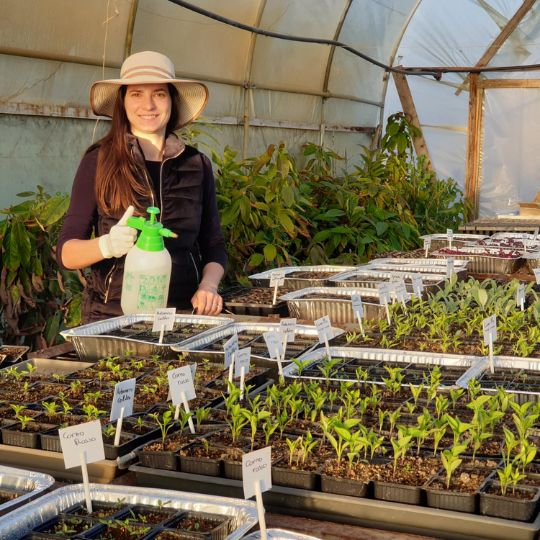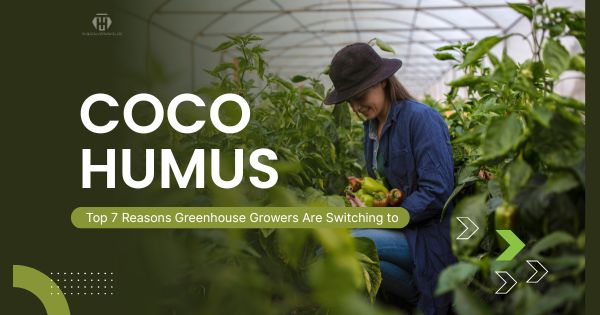As greenhouse farming expands worldwide, growers are constantly seeking sustainable materials that improve yield and soil health without harming the environment. One product that’s gaining rapid attention is Coco Humus — a composted, eco-friendly byproduct of coconut husks.
Thanks to its structure, nutrient value, and sustainability, Coco Humus greenhouse use is quickly replacing peat and synthetic substrates. Let’s explore the top seven reasons why greenhouse growers around the world are making the switch.
Improved Soil Aeration and Root Growth
Coco Humus naturally loosens compacted soil and enhances oxygen circulation, which is essential for root development. In greenhouse environments, where soil tends to compact over time, this property helps plants grow stronger and absorb nutrients efficiently.
Learn more about how Coco Humus improves soil health.
Exceptional Water Retention
Water management is crucial in greenhouse production. Coco Humus can absorb up to 8–10 times its weight in water, maintaining consistent moisture for crops like tomatoes, lettuce, and herbs. Growers reduce irrigation frequency while preventing root rot — a win-win for both plants and costs.
According to FAO’s irrigation efficiency report, better water balance directly improves greenhouse productivity.

Sustainable and Eco-Friendly Alternative
With peat bans increasing in Europe, growers are searching for renewable alternatives. Coco Humus is derived from coconut waste, making it a 100% sustainable growing input. It not only supports circular agriculture but also helps reduce carbon footprints.
Read more: From Waste to Wealth: How Coco Humus Supports Circular Agriculture.
Boosts Microbial Life
Healthy soil is alive. Coco Humus provides the perfect environment for beneficial microorganisms to thrive, which enhances nutrient cycling and natural disease resistance. This is especially important in greenhouse systems, where biodiversity can be limited.
Balances Nutrient Retention
Unlike raw coir, Coco Humus holds nutrients longer, preventing leaching. Fertilizers applied in greenhouse production remain available to plant roots over time, improving nutrient efficiency and yield.

Ideal for Organic Farming
Coco Humus is free from chemical residues, making it fully compatible with organic greenhouse farming. Growers can use it to meet certification standards while maintaining consistent crop performance.
See also: Coco Humus in Organic Farming: A Sustainable Alternative to Chemicals.
Global Availability and Export Potential
As a renewable resource, Coco Humus is abundantly available from tropical countries like Vietnam. Importers and distributors favor it for its quality, affordability, and compliance with organic standards.
~에 TH 글로벌 베트남, we supply export-grade Coco Humus in compressed blocks and bulk bags for large-scale greenhouse projects.
The Coco Humus greenhouse use trend is more than a passing fad—it’s part of a global shift toward sustainable, productive agriculture. From better root aeration and water retention to microbial health and organic certification, Coco Humus is redefining how modern greenhouses operate.
Ready to upgrade your greenhouse substrate? Contact TH Global Vietnam for bulk Coco Humus supply and customized export options.

